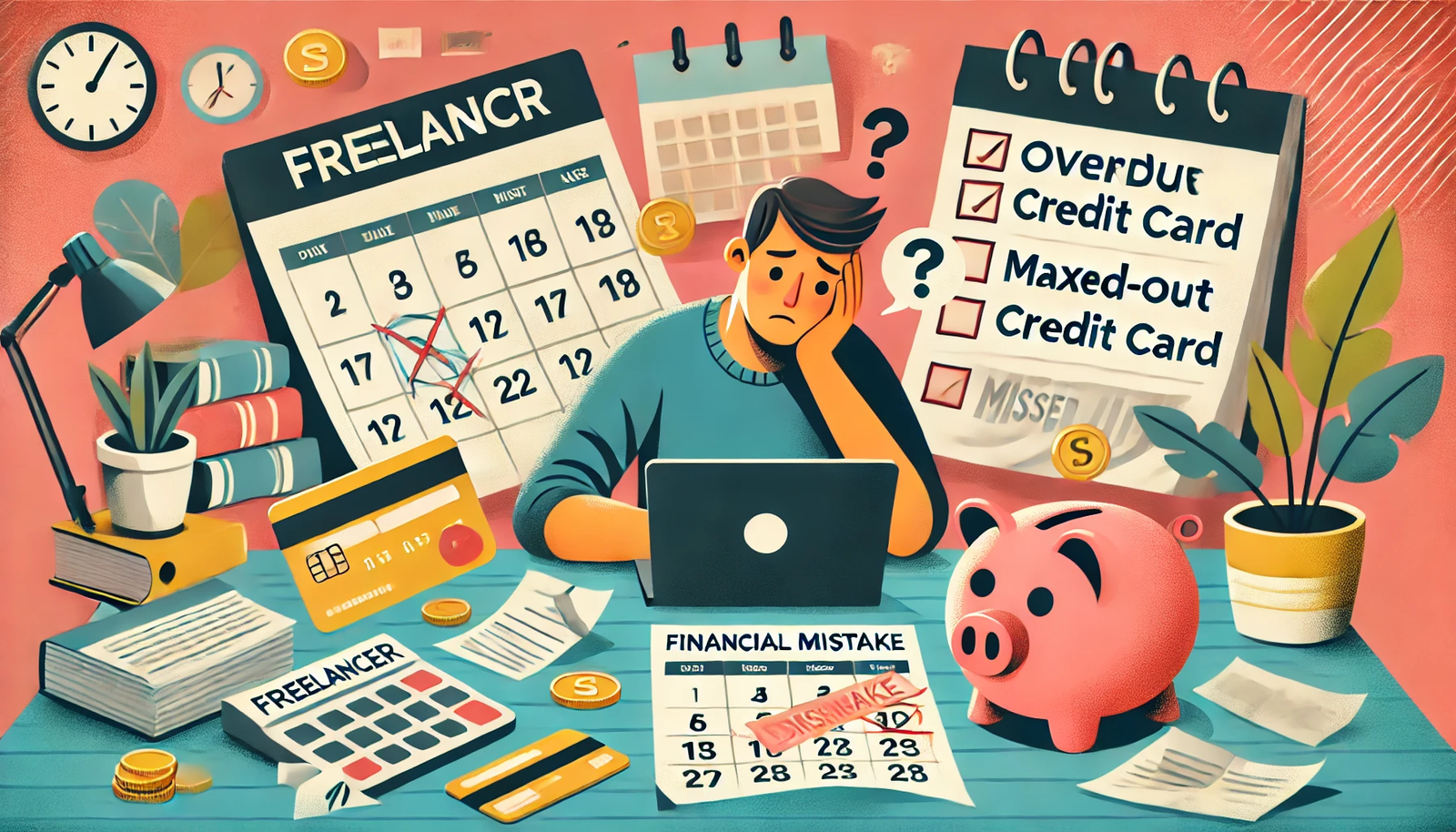Freelancing offers incredible flexibility and independence, but it also comes with its own set of financial challenges. Many freelancers make common financial mistakes that can be detrimental to their business and personal finances. Understanding these pitfalls and learning how to avoid them is crucial for long-term success.
Key Takeaways
- Budgeting: Essential for managing inconsistent income.
- Taxes: Importance of setting aside money and understanding tax obligations.
- Insurance: Protecting your income and health.
- Retirement Planning: Starting early for future security.
- Expense Tracking: Keeping accurate records to avoid overspending.
Common Financial Mistakes Freelancers Make
Not Budgeting for Inconsistent Income
Budgeting is crucial for freelancers due to the often inconsistent nature of their income. Without a steady paycheck, it can be challenging to manage finances effectively.
Creating a flexible budget helps in managing expenses during low-income months. Use tools and apps like Mint and YNAB (You Need A Budget) to keep track of your budget and ensure you are living within your means.
Failing to Set Aside Money for Taxes
Freelancers must understand their tax obligations and set aside money regularly to avoid a huge tax bill at the end of the year. The IRS suggests setting aside approximately 25-30% of your income for taxes.
Use tax software like TurboTax or consult a tax professional to estimate and set aside the correct amount for taxes.
Neglecting Retirement Planning
Many freelancers neglect retirement planning, thinking it’s too early or not necessary. However, starting early can make a significant difference due to the benefits of compound interest.
Consider options like IRA, Roth IRA, or SEP IRA. Investing in these accounts can secure your financial future and ensure a comfortable retirement.
Not Having an Emergency Fund
An emergency fund is essential for covering unexpected expenses and providing financial stability during low-income periods. Aim to save 3-6 months’ worth of living expenses in an easily accessible account.
Start by setting aside a small amount each month until you reach your target. This fund will act as a financial cushion during tough times.
Overlooking Business Expenses and Deductions
Freelancers often miss out on potential tax deductions by not keeping accurate records of their business expenses. Common deductible expenses include home office costs, business travel, and software subscriptions.
Use accounting software like QuickBooks or FreshBooks to track your expenses and maximize your deductions.
Ignoring Health and Disability Insurance
Freelancers need to ensure they have adequate health and disability insurance to protect their income and health. Look for affordable plans through platforms like Freelancers Union or the ACA Marketplace.
Having the right insurance coverage can provide peace of mind and financial security in case of illness or disability.
Underpricing Services
Many freelancers underprice their services, leading to financial strain and burnout. It’s essential to set competitive and sustainable rates that reflect your skills and the market demand.
Consider factors like experience, industry standards, and the value you provide when pricing your services. Proper pricing ensures long-term financial health and professional satisfaction.
Poor Invoice Management
Timely invoicing is critical for maintaining cash flow. Delayed invoices can lead to delayed payments, affecting your financial stability.
Create effective invoices with clear payment terms and use tools like FreshBooks or Wave for invoice management. These tools help track payments and follow up on overdue invoices efficiently.
Not Separating Personal and Business Finances
Separating personal and business finances simplifies tax filing and helps track business performance. It also protects personal assets from business liabilities.
Set up separate bank accounts for personal and business expenses. This practice ensures better financial management and clarity.
Lack of Financial Planning and Goal Setting
Setting financial goals and creating a plan is essential for long-term success. Outline your financial objectives and develop a strategy to achieve them.
Use tools like Mint or YNAB to help with financial planning and goal setting. Regularly review and adjust your plan to stay on track.
FAQs
How much should freelancers set aside for taxes?
Freelancers should set aside approximately 25-30% of their income for taxes. This amount can vary depending on the country and local tax regulations.
What are some common deductible expenses for freelancers?
Common deductible expenses include home office expenses, business travel, software subscriptions, and office supplies.
Why is it important to separate personal and business finances?
Separating personal and business finances simplifies tax filing, helps track business performance, and protects personal assets from business liabilities.
What types of insurance do freelancers need?
Freelancers should consider health insurance, disability insurance, and liability insurance to protect their income and health.
External URLs to Include
- Freelancers Union: Insurance Options
- IRS: Self-Employed Individuals Tax Center
- Investopedia: Retirement Planning for Freelancers
YouTube URLs to Include
- YouTube: Freelance Finance Tips
- YouTube: How to Budget as a Freelancer
- YouTube: Tax Tips for Freelancers
